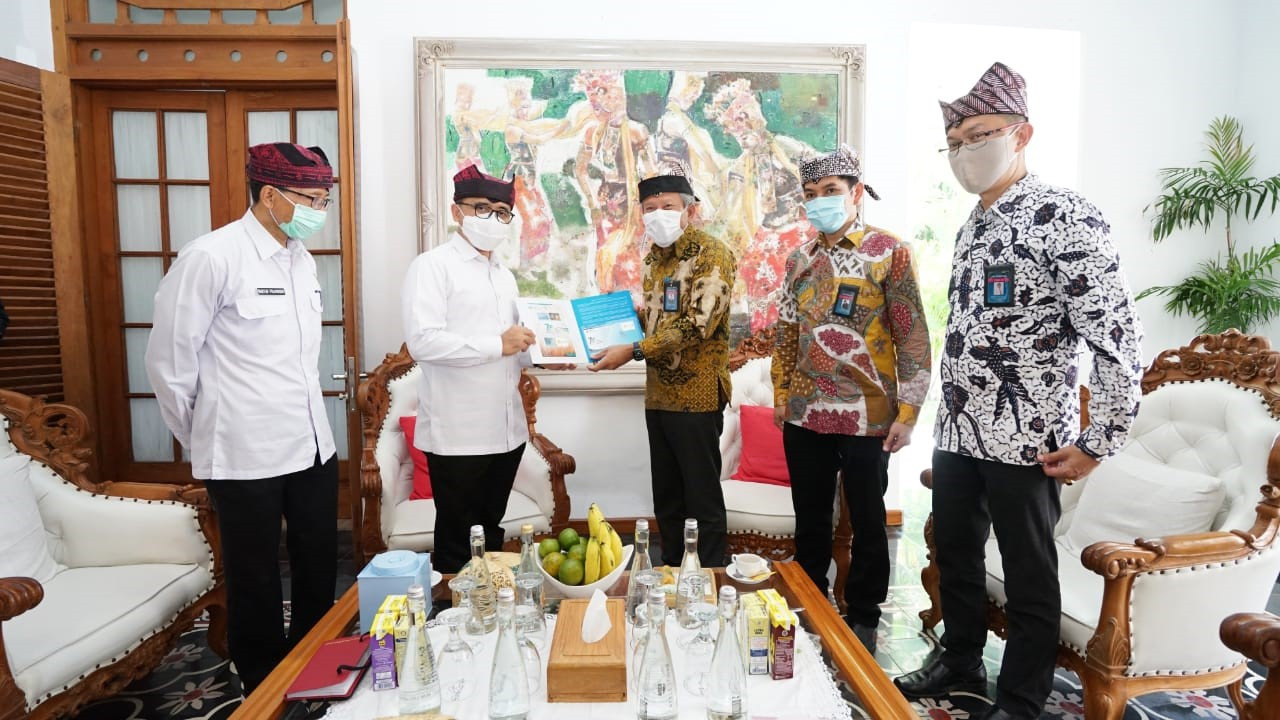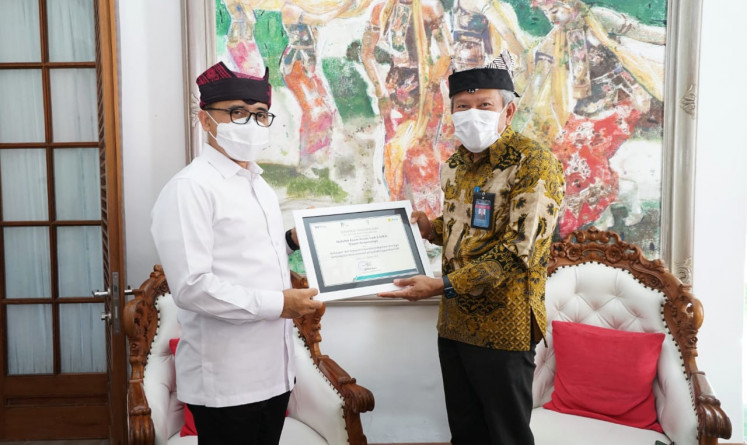Popular Reads
Top Results
Can't find what you're looking for?
View all search resultsPopular Reads
Top Results
Can't find what you're looking for?
View all search resultsElectricity consumption grows in Banyuwangi despite pandemic
Change text size
Gift Premium Articles
to Anyone
S
tate-owned electricity company PT PLN has shown its appreciation of Banyuwangi Regent Abdullah Azwar Anas for his strategic steps in developing the local economy, which has led to an increase in electricity consumption in the region.
Power consumption in Banyuwangi, East Java, has reportedly continued to grow even during the ongoing COVID-19 pandemic.
PLN East Java General Manager Nyoman S Astawa said during the pandemic, electricity consumption growth in Java-Bali was recorded at only 0.5 percent.
East Java was one of the two provinces in Java and Bali that recorded an electricity consumption growth of 2.6 percent. Banyuwangi regency, however, saw an electricity consumption growth of 9 percent for the January-September period.
“The high growth in Banyuwangi shows that economic activities continued despite the pandemic. This reflects how local people’s purchasing power remains stable. I highly appreciate Banyuwangi,” Nyoman said following a meeting with Banyuwangi Regent Abdullah Azwar Anas in Banyuwangi on Wednesday.
Nyoman disclosed that households used the most electricity, making up 10.5 percent of all consumption.
. (Courtesy of Pemkab Banyuwangi/.)“This is understandable, given the policy of staying at home during the pandemic,” he said. “The high energy consumption by households may also reflect an increase in household businesses here.”
Industrial groups were the second-highest users of electricity.
“This has surprised us. Power consumption among industries in Banyuwangi grew by nearly 8 percent. And the third-highest in this regard is the business sector, which saw electricity consumption increase by 5.4 percent,” Nyoman said.
Based on the facts, he added, economic growth in Banyuwangi was evenly spread, with all sectors growing steadily and without the region having to rely on one sector.
“The growth shows that nearly all sectors continued growing and have an equal share of growth. They’ve all grown and this is very good. This is different from Bali, which relies largely on one sector and consequently, the pandemic has severely affected [the economy]. Banyuwangi is different,” he said.
“Once again, the high electricity consumption in Banyuwangi shows that the regency has taken quick steps to finding a solution to the pandemic. Banyuwangi can withstand [the crisis]. Agriculture- and plantation-based businesses were able to survive and so did small and large enterprises. Although affected, tourism has started to pick up,” Nyoman said.
At the occasion, PLN thanked Banyuwangi Regent Azwar Anas for playing an important role in building electricity infrastructure in the region.
“Pak Anas has set a number of policies that drive the increase in electricity consumption in his region. This is important because the electricity consumption also shows that local economic activities [have prevailed],” he said.
One program aimed at electrifying agriculture businesses and provided dragon fruit farmers with support and greater electricity access to boost their productivity.
Dragon fruit plantations now cover 1,200 hectares of land, with 4,800 farmers becoming PLN customers, Nyoman said.
“There is also a rural electricity program called Lisdes, which increased the electrification ratio by electrifying villages, including Alas Purwo, Lereng Ijen and Meru Betiri. The electricity ratio in 2019 was recorded at 99 percent and 100 percent in 2020.”
The regent also supported the sale of electricity in the region, which led to the kilowatt hour (kWh) sale increase from 738.29 GWH in 2019 to 804.435 in 2020. The number of electricity customers in Banyuwangi has also increased to 14,576 customers in 2020.
Meanwhile, Anas extended his appreciation to PLN for its support in spurring economic growth in Banyuwangi.
“I hope that this strategic collaboration can continue so as to drive the economic growth and prosperity of the people of Banyuwangi,” Anas said.











